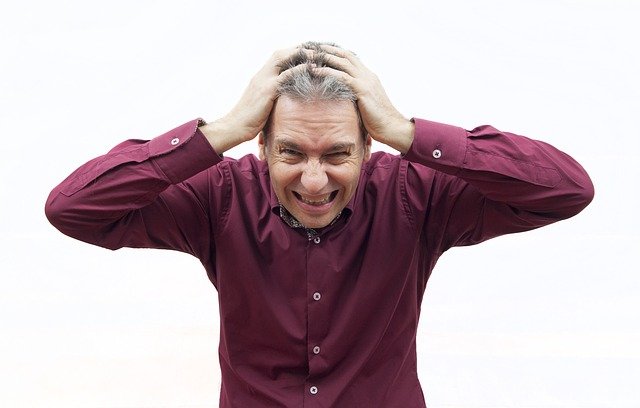Hair loss, or alopecia, isn’t just a medical condition; it’s a global phenomenon impacting countless lives. While genetics, hormonal shifts, and health issues are well-known culprits, there’s a hidden factor often overlooked: stress. This article unravels the intricate link between stress and hair loss, revealing how ongoing stress can be a significant trigger for this distressing issue. Join us as we explore the depth of this connection and its implications.
Understanding Hair Growth and the Hair Growth Cycle
Before we delve into the relationship between stress and hair loss, let’s take a moment to understand the hair growth process and the hair growth cycle. Hair growth is a complex biological process that occurs in cycles, consisting of four main phases:
1. Anagen Phase (Growth Phase):
This is the active phase of hair growth, during which hair cells rapidly divide, and the hair shaft elongates. On average, hair can grow about half an inch per month during this phase, which lasts for approximately 2 to 7 years.
2. Catagen Phase (Transitional Phase):
In this short phase lasting about 10 days, hair growth slows down, and the hair follicle undergoes a transition. The hair detaches from the blood supply and prepares to enter the next phase.
3. Telogen Phase (Resting Phase):
During the telogen phase, the hair follicle rests for about 3 to 4 months. Approximately 10-15% of our hair is in this phase at any given time. After the resting period, the hair sheds, and the cycle starts anew.
4. Exogen Phase (Shedding Phase):
This phase involves the shedding of old hair to make way for new hair growth. It’s a natural part of the hair growth cycle and usually results in the loss of 50-100 hairs per day.
The Impact of Stress on Hair Loss
Stress is a biological response triggered by various external and internal factors that put pressure on our physical and mental well-being. When we experience stress, our bodies release stress hormones like cortisol and adrenaline. While the stress response is crucial for survival, chronic and prolonged stress can lead to a wide array of health issues, including hair loss.
1. Telogen Effluvium:
Telogen effluvium is a type of hair loss that occurs when a significant number of hair follicles suddenly enter the telogen (resting) phase together, leading to excessive shedding. Prolonged stress, whether from emotional stressors or physical illness, can disrupt the hair growth cycle, causing more hair to enter the resting phase simultaneously. This shedding can be alarming, and individuals may notice clumps of hair coming out during washing or brushing.
2. Trichotillomania:
Trichotillomania is a hair-pulling disorder often triggered by stress, anxiety, or tension. Individuals with this condition compulsively pull out their hair, leading to noticeable hair loss in specific areas. The repetitive behavior serves as a coping mechanism for stress but exacerbates the hair loss problem.
3. Alopecia Areata:
Alopecia areata is an autoimmune condition where the immune system attacks hair follicles, causing hair loss in patches. Stress is believed to be a potential trigger for this condition in genetically predisposed individuals, leading to immune system dysfunction.
4. Hormonal Imbalance:
Chronic stress can also disrupt the delicate balance of hormones in the body. Increased cortisol levels can affect the production of other hormones like thyroid hormones and sex hormones, which play a crucial role in maintaining healthy hair growth.
Managing Stress to Prevent Hair Loss
If you’re concerned about hair loss caused by stress, there are several steps you can take to manage stress effectively and promote hair growth:
1. Practice Relaxation Techniques:
Incorporate relaxation techniques such as meditation, yoga, deep breathing exercises, or mindfulness practices into your daily routine. These can help lower stress levels and promote overall well-being.
2. Regular Exercise:
Engaging in regular physical activity can release endorphins, the body’s natural mood lifters, and reduce stress levels. Aim for at least 30 minutes of exercise most days of the week.
3. Prioritize Sleep:
Adequate sleep is crucial for the body’s ability to recover and recharge. Aim for 7-9 hours of quality sleep each night to support overall health and reduce stress.
4. Seek Support:
Talking to friends, family, or a professional counselor can be immensely helpful in managing stress and emotional challenges.
5. Balanced Diet:
Ensure you’re consuming a well-balanced diet rich in essential nutrients, including vitamins and minerals that support healthy hair growth.
6. Avoid Harsh Hair Treatments:
Minimize the use of heat styling tools and harsh hair treatments, as these can exacerbate hair damage and breakage.
7. Consult a Dermatologist:
If you’re experiencing severe hair loss, consider consulting a dermatologist or a healthcare professional specializing in hair loss. They can assess your condition and recommend appropriate treatments.
Stress and hair loss are undeniably connected, and managing stress effectively can play a vital role in maintaining healthy hair growth. By understanding the impact of chronic stress on the hair growth cycle and implementing strategies to reduce stress, you can take proactive steps towards preserving your locks.
Remember, a holistic approach to wellness, including stress management, can make a significant difference in not only your hair health but your overall quality of life. Prioritize self-care and take proactive steps to combat stress, and your hair will thank you for it.
Be sure to read this helpful post: How to Check-In With Yourself and Your Anxiety.
When you are stressed, your body switches to a “resting phase” and hair production plummets. This means that over 50% of the hairs on your head can fall out during normal activities like brushing or washing.
The COVID-19 Stress
As the COVID-19 pandemic progresses, we are seeing a dramatic uptick in stress-related hair loss. The rise of life events such as worrying about loved ones and job-related stresses paired with feelings of social isolation have led to higher rates of people experiencing baldness than ever before. Preventative measures for combatting these issues can include but may not be limited to proper nutrition, sufficient exercise, and time management strategies which will allow you to better care for yourself while still caring enough about others that this won’t affect your mental health.
Cause of Your Hair Loss
Like many types of hair loss, stress-related can be hard to detect. You may not notice that you’re losing more and more until it becomes a serious issue. In addition to hormonal changes, pregnancy, severe illness, and injury, financial hardships are just some of the events associated with hair loss as well as a diet change or sleep deprivation which all contribute to thinning strands in your head over time.
Time to take action
If the stress you’re experiencing is chronic and severe, consider speaking with a trained mental health professional. If that isn’t possible, try making lifestyle changes like taking daily walks or introducing whole foods into your diet to help decrease your stress levels. Your mind and body (and hair) will thank you!
If all else fails and would rather stick close to home for support during this time of transition in life events- Concord Hair Restoration offers free consultations via phone or video chat which can be scheduled at Concord Hair Restoration

